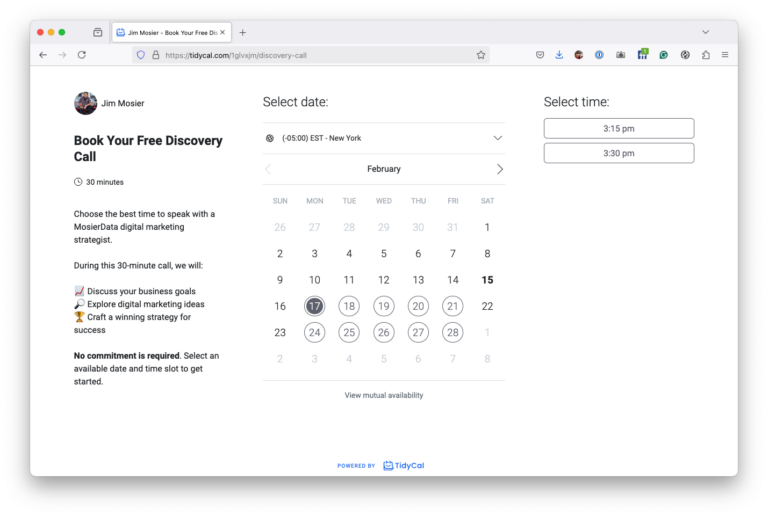As a web developer in Florida, you’re constantly looking for ways to stand out in a competitive market, and mastering SEO is key. By focusing on local search optimization, responsive design, and page speed, you can greatly enhance user experience and search rankings. But that’s just the beginning. Imagine the impact of integrating local keywords and structured data. Curious about the other strategies that can elevate your web development projects?
When optimizing for local search in Lakeland, FL, it’s crucial to focus on elements that boost your visibility in the area. Start by claiming and optimizing your Google My Business listing. Guarantee your business name, address, and phone number are consistent across all online platforms. Encourage satisfied customers to leave positive reviews, as they can considerably impact your local rankings.
Next, integrate localized keywords into your website content, including specific mentions of Lakeland, FL. This helps search engines connect your business with local searches. Additionally, leverage local backlinks by connecting with other local businesses or participating in community events. Being active on local social media groups can also enhance your presence. These strategies will improve your local search standing, driving more traffic to your website.
Local visibility is just one piece of the web development puzzle; a mobile-friendly design is equally important. In today’s fast-paced digital world, users expect seamless browsing on their phones and tablets. If your site isn’t optimized for mobile, you risk losing visitors quickly.
Start by using responsive design techniques, guaranteeing your layout adapts smoothly to different screen sizes. Pay attention to the navigation—make it intuitive and easy to tap. Avoid clutter, and keep content concise. Also, verify buttons and links are easy to click without zooming. Test the site on multiple devices to catch any issues.
Page load times can make or break your site’s user experience. Slow pages frustrate visitors, causing them to leave before even engaging with your content. As a web developer in Florida, you should prioritize optimizing your site’s speed.
Start by compressing images and minimizing code, which reduces the data the browser must load. Use tools like Google PageSpeed Insights to identify areas needing improvement.
Consider enabling browser caching so returning visitors don’t need to reload everything. You can also leverage content delivery networks (CDNs) to distribute your content globally, reducing server response times. Remember, faster sites not only improve user experience but also boost your SEO rankings. Search engines favor sites that load quickly, so don’t underestimate the impact of speed on your site’s success.
Frequently, leveraging local keywords in your content can markedly enhance your website’s visibility to nearby users. When you incorporate terms specific to your area, like "Miami web development" or "Orlando SEO services," you signal to search engines that your business is relevant to local queries. This tactic not only boosts your search rankings but also attracts a targeted audience genuinely interested in your services.
To get started, research popular local terms using tools like Google Keyword Planner. Once you’ve identified these keywords, integrate them naturally into your content. Use them in headings, meta descriptions, and throughout your site. Don’t forget to mention landmarks or neighborhoods, as they can further refine your reach. By doing so, you’re positioning your site where it matters most—right in your community’s search results.
Structured data markup is a powerful tool that can enhance your website’s visibility in search engine results. By implementing schema markup, you provide search engines with detailed information about your site’s content, making it easier for them to understand and categorize your pages. This can lead to rich snippets, which display additional information like reviews, ratings, and event details directly in search results, catching users’ attention.
To get started, identify which schema types best suit your content. Use Google’s Structured Data Markup Helper to create and test your markup, ensuring it’s error-free. Once implemented, monitor your site’s performance using Google Search Console. Structured data not only boosts your site’s visibility but also increases your click-through rates, giving you a competitive edge in the crowded digital landscape.
While structured data markup enhances visibility, creating high-quality backlinks further amplifies your site’s authority and search rankings. You can’t underestimate the power of a strong backlink profile.
Focus on earning links from reputable sites related to your niche. This shows search engines your content’s credibility. Reach out to industry leaders or collaborate on guest blogs to gain these valuable links.
Don’t just rely on quantity; prioritize quality over the number of links. Broken link building can be a goldmine. Find broken links on authoritative sites and offer your content as a replacement.
Also, create shareable, engaging content that naturally attracts links. Remember, building high-quality backlinks doesn’t happen overnight. Patience and consistent effort will eventually reward you with improved search engine visibility.
Smooth navigation is essential for enhancing user experience and retaining visitors on your website. When users easily find what they’re looking for, they’re more likely to stay longer and explore further.
Start by organizing your site’s menu logically. Group related content together and use clear, descriptive labels. Avoid overwhelming users with too many options; keep it simple.
Implement a search bar to help visitors quickly locate specific content. Guarantee your navigation is mobile-friendly, as many users access sites on their phones. Test your navigation regularly to ascertain all links work and pages load quickly.
Utilize breadcrumb trails to help users understand their current location on your site. Prioritizing intuitive navigation not only improves user experience but also boosts your SEO performance.
Keeping your website’s content fresh and updated is essential for maintaining relevance and attracting visitors. When you consistently refresh your content, search engines notice, boosting your site’s ranking.
Begin by reviewing web pages regularly, ensuring information stays accurate and engaging. Outdated content can drive users away, so replace it with current data, trends, or insights.
Consider adding new blog posts or articles that address recent industry developments. This not only keeps your site on top of search results but also establishes you as an authority in your field. Don’t forget to update existing articles with new information or perspectives. Engaging multimedia elements like images and videos can breathe new life into older content.
Meta tags and descriptions are critical tools in your SEO arsenal, directly impacting how your site appears in search engine results. You should guarantee your meta tags are precise and relevant to each page’s content. Use keywords naturally, making sure they’re specific to what users might search for.
Don’t forget to craft compelling meta descriptions; they’re your chance to grab attention and encourage clicks. Keep them concise—around 150-160 characters—so they’re fully visible on search pages. Ensure each page has a unique description to avoid duplication penalties.
Analyzing your website’s performance through analytics is essential for refining your SEO strategies. By keeping a close eye on metrics like organic traffic, bounce rate, and conversion rates, you’ll get insights into what’s working and what needs improvement. Tools like Google Analytics offer detailed reports that can guide your decisions effectively.
Don’t just gather data; act on it. If certain pages have high bounce rates, reconsider their content or keywords. When you notice a dip in organic traffic, investigate potential algorithm changes or technical issues. Regularly updating your strategies in response to these findings keeps your site optimized.
Social media can boost your site’s SEO ranking by increasing visibility and driving traffic. When users share your content, it creates backlinks, which search engines love.
You should engage with your audience on platforms like Facebook, Twitter, and Instagram to enhance your site’s authority and relevance. Encourage sharing by posting valuable content. Don’t forget to link back to your site.
This strategy can improve your site’s position in search results and attract more visitors.
Voice search is reshaping SEO by emphasizing natural language and question-based queries. You should optimize your content to match conversational tones and long-tail keywords. Consider how people speak rather than type.
Create FAQ sections to address common questions directly. This approach helps your site rank better for voice searches. Remember, mobile optimization and fast loading speeds are essential since most voice searches happen on mobile devices.
Stay ahead by adapting to these trends.
Video content can markedly boost your SEO performance. It increases user engagement, keeps visitors on your site longer, and can improve your page’s ranking in search results.
By optimizing video descriptions with relevant keywords, you enhance discoverability. Search engines favor websites that offer diverse content, and videos can help you stand out.
Make sure your videos are high-quality and load quickly to maintain a positive user experience.
You can definitely use AI tools to improve your SEO strategy. These tools help you analyze data, optimize keywords, and even generate content ideas. They save time and provide insights into search trends, ensuring your site stays competitive.
With AI, you can automate tedious tasks, allowing you to focus on creative aspects. Embrace AI’s potential to refine your strategy and boost your site’s visibility and ranking effectively.
You want to avoid several common SEO mistakes.
Don’t ignore keyword research; it’s essential for targeting the right audience.
Avoid keyword stuffing, as it hurts readability and ranking.
Guarantee your website is mobile-friendly, or you risk losing traffic.
Don’t neglect updating old content; it can boost relevance.
Lastly, ensure fast loading times, as users won’t stick around if your site’s slow.
Keep these pitfalls in mind for better SEO results.
By following these SEO tips, you’ll dramatically boost your web presence as a developer in Florida. Optimize your Google My Business listing, guarantee consistent NAP, and gather positive reviews to enhance local visibility. Use responsive design and fast load times to improve user experience. Incorporate local keywords and structured data for better search rankings. Keep content fresh, use effective meta tags, and monitor analytics to refine your strategies. You’ll drive more qualified traffic to your site.

